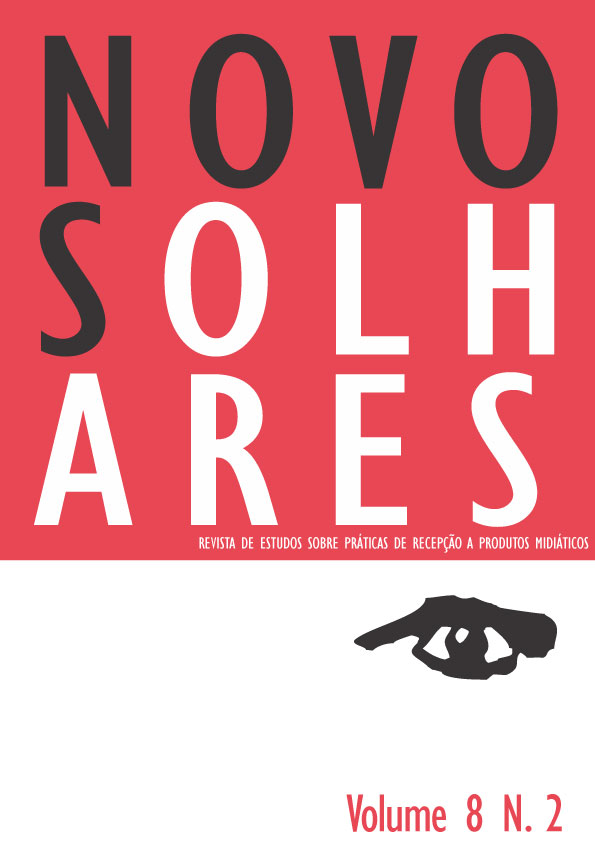Would fake news be more efficient to right-wing campaigns?
– a hypothesis from the elections of 2018 in Brazil
DOI:
https://doi.org/10.11606/issn.2238-7714.no.2019.162062Keywords:
Brazilian Electoral Campaign (2018), Post-truth, Social Networks, Factual Truth, Fake NewsAbstract
The Brazilian presidential campaign of 2018 showed a strong wastage of the image of traditional politics (parties and politicians). It brought evidences – which had already been observed in the United States in 2016 – that far-right followers would be more likely to spread fake news on social networks. This article revisits several researches on both 2018 Brazilian elections and 2016 elections in the United States and notes that, at least according to available data, conservative (right-wing) populism shows signs of being more efficient in using fake news, taking advantage of the rupture between political debate and the so-called by Hannah Arendt “factual truth”. It remains to be seen, from now on, whether further studies will confirm the greater aptitude of political conservatism for the use of fraudulent news and what consequences will follow for the democratic order.
Downloads
References
ARENDT, H. Verdade e Política. Tradução de Manuel Alberto. [São Paulo]: Abdet, 2014. Disponível em: https://bit.ly/2lSKI4A. Acesso em: 20 maio 2017.
BULLA, B. Estudo associa polarização a “notícias distorcidas”. O Estado de S.Paulo, São Paulo, 5 out. 2018, 05:00. Disponível em: https://bit.ly/2BZqE6X. Acesso em: 6 jun. 2019.
COMPROVA: É falso vídeo de multidão em ato “pela saúde” de Bolsonaro. Band, São Paulo, 20 set. 2018, 14:17. Disponível em: https://bit.ly/2kyybmX. Acesso em: 7 jun. 2018.
DATAFOLHA: 6 em cada 10 eleitores de Bolsonaro se informam pelo WhatsApp. Veja, São Paulo, 3 out. 2018, 09:16. Disponível em: https://bit.ly/2lL55Rw. Acesso em: 6 jun. 2019.
DIAS, M. Uso de Whatsapp para divulgar fake news “talvez não tenha precedentes”, diz chefe de missão da OEA. Folha de S.Paulo, São Paulo, 25 out. 2018, 12:44. Disponível em: https://bit.ly/2Sb9lob. Acesso em: 6 jun. 2019.
DZIKES, P. Study: On Twitter, false news travels faster than true stories. MIT News, Cambridge, mar. 2018. Disponível em: https://bit.ly/2toeBNS. Acesso em: 6 jun. 2019.
GRAGNANI, J. Bolsonaro presidente: processos no STF serão suspensos após a posse. BBC News, Londres, 30 out. 2018. Disponível em: https://bbc.in/2kiXtoW. Acesso em: 28 jun. 2019.
GUESS, A.; LYONS, B.; MONTGOMERY, J.M.; NYHAN, B.; REIFLER, J. 2018. Fake news, Facebook ads, and misperceptions: Assessing information quality in the 2018 U.S. midterm election campaign. Hanover: Dartmouth College, 2018. Disponível em: https://bit.ly/2mfEZ9z. Acesso em: 6 jun. 2019.
JUNK news dominating coverage of US midterms on social media, new research finds. Oxford Internet Institute, Oxford, 1 nov. 2018. Disponível em: https://bit.ly/2DpzRGX. Acesso em: 6 jun. 2019.
KAISER, A. J. Woman who Bolsonaro insulted: “Our president-elect encourages rape”. The Guardian, São Paulo, 23 dez. 2018, 08:00. Disponível em: https://bit.ly/2lJGM6l. Accesso em: 6 jun. 2019.
MACEDO, I. Das 123 fake news encontradas por agências de checagem, 104 beneficiaram Bolsonaro. Congresso em foco, Brasília, DF, 26 out. 2018. Disponível em: https://bit.ly/2kx80wZ. Acesso em: 6 jun. 2019.
MARINI, L. Em 27 anos de Câmara, Bolsonaro prioriza militares e ignora saúde e educação. Congresso em foco, Brasília, DF, 7 ago. 2018, 08:00. Disponível em: https://bit.ly/2xkNGC5. Acesso em: 6 jun. 2019.
MELLO, P. C. Empresários bancam campanha contra o PT pelo WhatsApp. Folha de S.Paulo, São Paulo, 18 out. 2018, 20:00. Disponível em: https://bit.ly/2NKhptj. Acesso em: 6 jun. 2019.
MEYER, R. The grim conclusions of the largest-ever study of fake news. The Atlantic, Boston, 8 mar. 2018. Disponível em: https://bit.ly/2ukl0a4. Acesso em: 6 jun. 2019.
NOTÍCIAS falsas sobre a “lava jato” repercutem mais que verdadeiras. Conjur, São Paulo, 22 nov. 2016, 18:12. Disponível em: https://bit.ly/2kuzZgJ. Acesso em: 28 jun. 2019.
POMPEU, A. Bolsonaro, o mito de pés de barro. Congresso em foco, Brasília, DF, 2018. Disponível em: https://bit.ly/2OoCLkD. Acesso em: 6 jun. 2019.
PREITE SOBRINHO, W. PSL elege mais de 50 deputados e 4 senadores. UOL, São Paulo, 8 out. 2018, 03:24. Disponível em: https://bit.ly/2SRwhtu. Acesso em: 7 jun. 2019.
SALTO no escuro. O Estado de S.Paulo, São Paulo, 29 out. 2018, 00:00. Disponível em: https://bit.ly/2ACq7H3. Acesso em: 6 jun. 2019.
SATURNINO, L. Conheça os manipuladores macedônios por trás das “fake news”. Mundobit, Recife, 13 jul. 2018, 09:03. Disponível em: https://bit.ly/2kuAMhH. Acesso em: 28 jun. 2019.
SCHRADIE, J. The revolution that wasn’t: how digital activism favors conservatives. Cambridge: Harvard University Press, 2019.
SCHULTZ, A. VELASCO, C. É #FAKE que Haddad disse que criança vira propriedade do Estado aos 5 anos e pode ter seu gênero escolhido. G1, [s. l.], 2 out. 2018, 15:52. Disponível em: https://glo.bo/2C03U6x. Acesso em: 7 jun. 2019.
THE CAMBRIDGE Analytica Files. The Guardian, Londres, 2018. Disponível em: https://bit.ly/2FUXZz7. Acesso em: 6 jun. 2019.
Downloads
Published
Issue
Section
License
Proposta de Aviso de Direito Autoral Creative Commons
1. Proposta de Política para Periódicos de Acesso Livre
Autores que publicam nesta revista concordam com os seguintes termos:
- Autores mantém os direitos autorais e concedem à revista o direito de primeira publicação, com o trabalho simultaneamente licenciado sob a Licença Creative Commons Attribution CC Attribution-NonCommercial-NoDerivatives 4.0, que permite o compartilhamento do trabalho com reconhecimento da autoria e publicação inicial nesta revista.
- Autores têm autorização para assumir contratos adicionais separadamente, para distribuição não-exclusiva da versão do trabalho publicada nesta revista (ex.: publicar em repositório institucional ou como capítulo de livro), com reconhecimento de autoria e publicação inicial nesta revista.
- Autores têm permissão e são estimulados a publicar e distribuir seu trabalho online (ex.: em repositórios institucionais ou na sua página pessoal) a qualquer ponto antes ou durante o processo editorial, já que isso pode gerar alterações produtivas, bem como aumentar o impacto e a citação do trabalho publicado.



